Welcome To Laizhou Dingrong Steel Structure From China
Whatsapp:+8615192384158
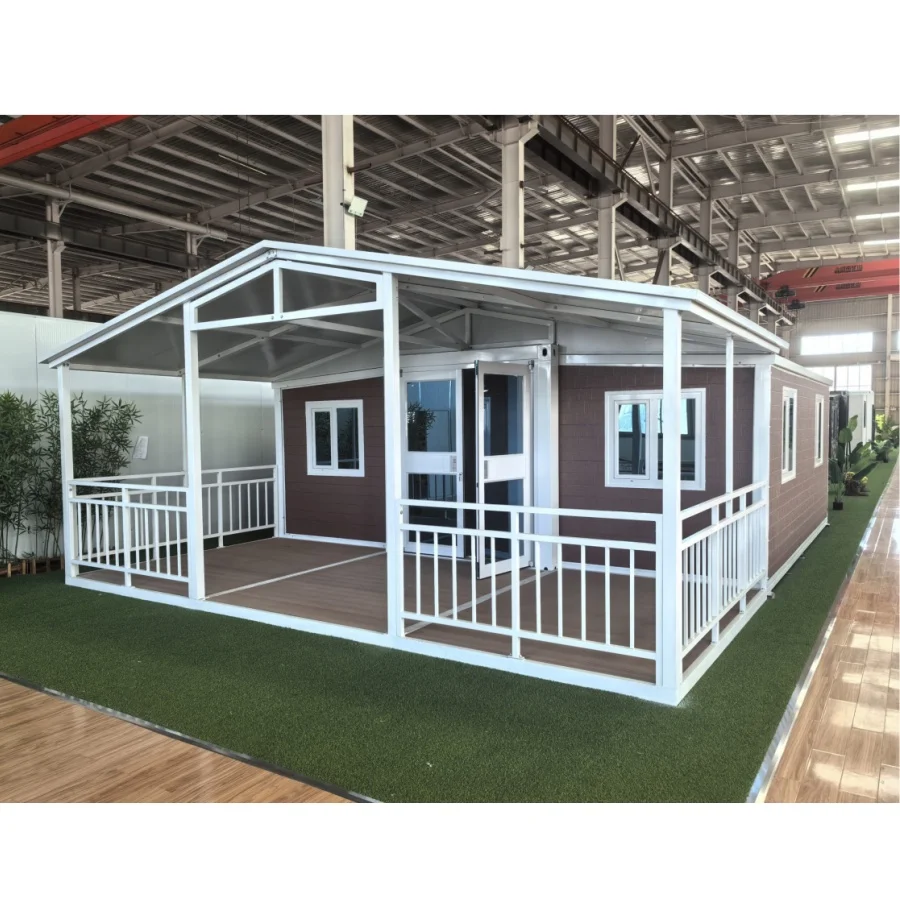
?
In recent years, the concept of housing has evolved significantly, giving rise to innovative and practical solutions. One such remarkable innovation is the expandable container house. As the name suggests, it is a dwelling unit fabricated from shipping containers, which have been ingeniously modified and designed to offer expandable living spaces. These houses are not only a trendy alternative to traditional homes but also address various housing needs, be it temporary accommodation, additional living space, or even a permanent abode in some cases.
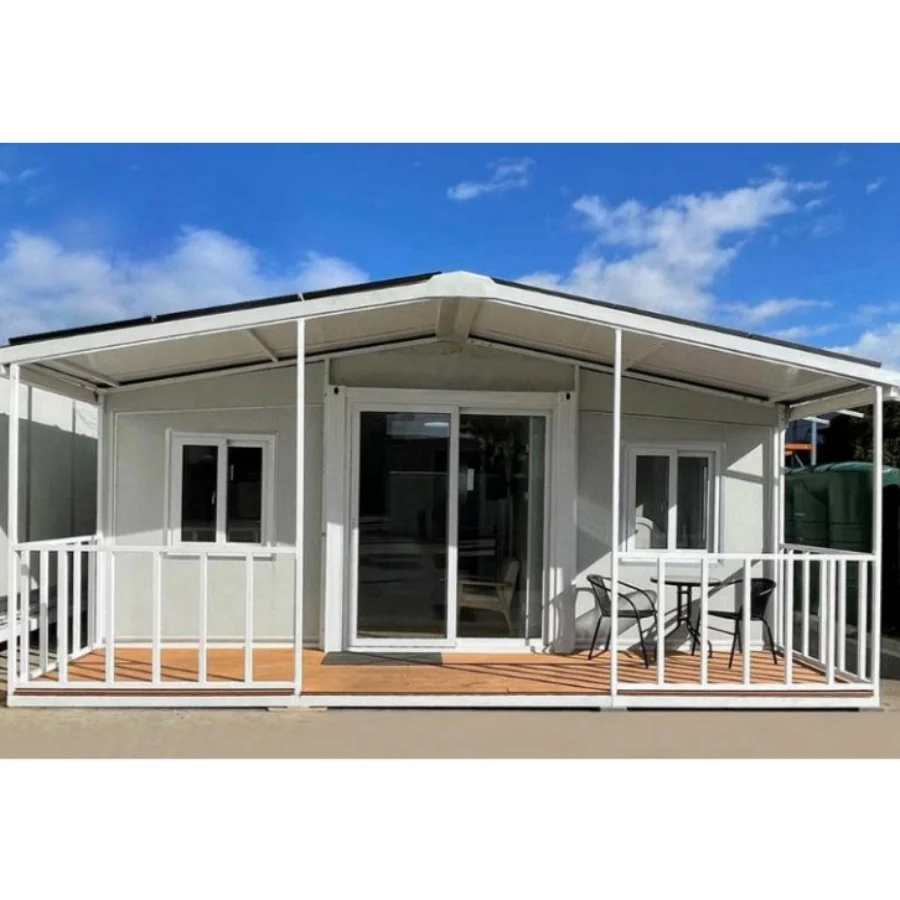
One of the most significant advantages of expandable container houses is their cost-effectiveness. Traditional construction often involves hefty expenses, including raw materials, labor costs, and potential delays. In contrast, expandable container houses are manufactured in factories, where components are prefabricated with precision. This not only reduces material waste but also cuts down on labor costs as the assembly process at the site is relatively quick and straightforward. With a shorter construction time, you can save on both time and money, making it an ideal choice for those looking for affordable housing solutions without compromising on quality.
Expandable container houses offer unparalleled flexibility and customizability. Need more space? These houses can be easily expanded to accommodate your growing requirements. Whether it's adding an extra bedroom, a study room, or a larger living area, the modular design allows for seamless expansion. Moreover, you have the freedom to design the interior layout according to your taste and needs. From choosing the color scheme to deciding on the placement of windows and doors, every aspect can be tailored to create a personalized living space. This versatility makes expandable container houses suitable for a wide range of applications, from residential homes to offices and even commercial establishments like cafes or pop-up stores.
Another remarkable feature of expandable container houses is their mobility. If you need to relocate, these houses can be easily disassembled and transported to a new location. This makes them an excellent option for temporary housing, such as on construction sites, for disaster relief efforts, or for those who love to travel and want a portable home. Additionally, their reusability factor is a significant plus. Once you no longer need the structure in a particular place, it can be repurposed elsewhere, reducing waste and environmental impact. This sustainable aspect aligns with the growing global focus on eco-friendly living solutions, making expandable container houses a smart choice for the environmentally conscious.
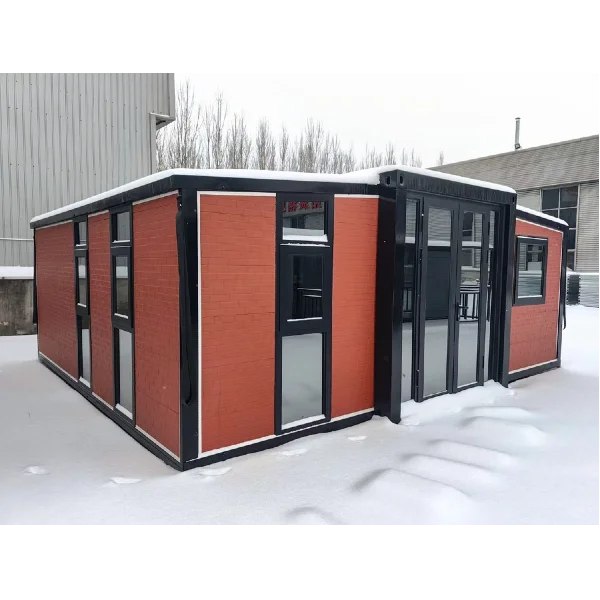
Expandable container houses have found a significant place in the residential sector. For single individuals or young professionals, a compact expandable container house can serve as a stylish and affordable bachelor pad. It provides all the essential amenities in a small footprint, which can later be expanded if needed. For families, these houses can be customized to include multiple bedrooms, a spacious living area, and a functional kitchen. Some even use them as vacation homes, allowing them to enjoy a unique living experience close to nature. There are numerous stories of families who have transformed an ordinary container into a cozy retreat by the beach or in the mountains, complete with large windows to soak in the views and a deck for outdoor relaxation.
In the commercial realm, expandable container houses offer businesses unmatched flexibility. Start-ups and small enterprises often face budget constraints when it comes to setting up an office space. An expandable container house can be the perfect solution, providing a professional workspace that can be easily modified as the business grows. Retailers, too, are leveraging this concept for pop-up shops and temporary stores. During festivals or busy shopping seasons, brands can quickly set up a container store in high-footfall areas, display their products, and dismantle it once the event is over. This not only reduces rental costs but also creates a trendy and eye-catching shopping experience for customers.
When disasters strike, such as earthquakes, floods, or tsunamis, providing immediate shelter to the affected population becomes crucial. Expandable container houses have proven to be a game-changer in such situations. They can be rapidly deployed to disaster-stricken areas, providing survivors with a safe and dry place to stay. These houses are equipped with basic necessities like beds, clean water supply, and sanitation facilities, ensuring the well-being of those displaced. In refugee camps across the world, expandable container houses are being used to offer more permanent and dignified living quarters compared to traditional tents. They can withstand harsh weather conditions and provide a sense of security and privacy to the refugees, helping them rebuild their lives in difficult circumstances.
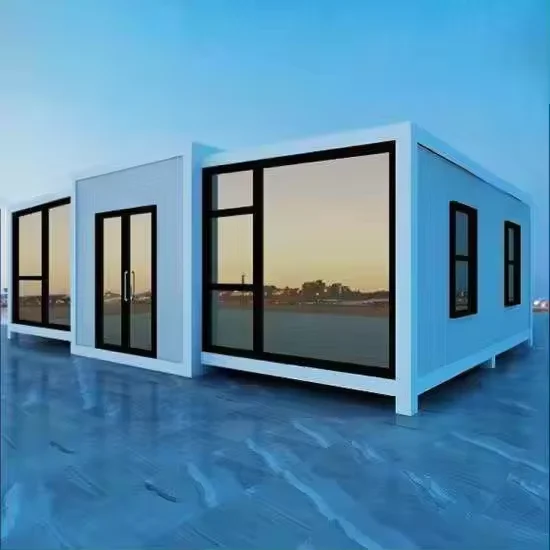
Budget and Financing Options
Before diving into the world of expandable container houses, it's crucial to assess your budget meticulously. The cost of an expandable container house encompasses not only the purchase price of the unit but also additional expenses such as transportation, installation, and potential modifications. You need to factor in the cost of leveling the site if it's uneven, laying the foundation, and connecting utilities like water, electricity, and sewage. Additionally, ongoing maintenance costs, including painting, repairing any wear and tear, and replacing components over time, should also be considered.
Fortunately, there are various financing options available. Some financial institutions offer loans specifically for prefabricated housing. You can explore these options to see if you qualify for a mortgage or a personal loan. Another alternative is leasing, which can be a viable choice if you only need the container house for a short period or want to test it out before making a long-term commitment. Lease-to-own programs are also becoming increasingly popular, allowing you to rent the container house with an option to purchase it at the end of the lease term.
The location where you plan to place your expandable container house is of utmost importance. Ideally, you should look for a flat and stable surface. Uneven ground can cause structural issues over time, leading to costly repairs. Ensure that the site has proper drainage to prevent waterlogging, which can damage the container and its contents. Proximity to essential amenities like water and electricity sources is also key. If the site doesn't have existing utility connections, you'll need to factor in the cost and effort of getting them installed.
In some areas, you may also need to obtain permits or approvals from local authorities. Zoning regulations can vary widely from one municipality to another. Some regions may have restrictions on using container houses for permanent residences, while others may require you to meet specific building codes and safety standards. It's essential to do your research and consult with local planning departments to ensure that your project complies with all the necessary regulations. This step can save you from potential legal headaches and costly fines down the line.
With the growing popularity of expandable container houses, the market has seen a proliferation of suppliers. However, not all of them offer the same level of quality. It's vital to choose a reputable and reliable supplier to ensure that you get a durable and well-built product. Look for suppliers with a proven track record, positive customer reviews, and industry certifications.
When evaluating the quality of an expandable container house, pay attention to the materials used. High-quality steel containers with proper corrosion protection are preferable. The insulation materials should also be of good quality to ensure energy efficiency and comfort inside the house. Check the craftsmanship, including the welding joints, door and window fittings, and the overall finish. A reliable supplier will also provide warranties and after-sales service, giving you peace of mind in case any issues arise. Don't be swayed solely by the lowest price; instead, focus on the overall value and quality that the supplier offers.
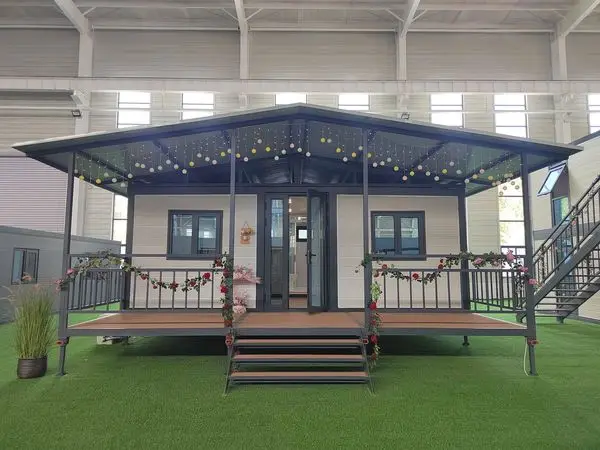
Expandable container houses have emerged as a revolutionary housing solution, combining innovation, practicality, and sustainability. Their numerous advantages, including cost-effectiveness, flexibility, mobility, and reusability, make them a versatile option for a wide range of applications. Whether you're looking for an affordable residential option, a flexible commercial space, or a reliable solution for emergency shelter, expandable container houses have the potential to meet your needs. However, it's essential to carefully consider factors such as budget, site selection, and quality before making a purchase. As the demand for alternative housing solutions continues to grow, we can expect to see even more advancements and creative uses of expandable container houses in the future. So, if you're in the market for a unique and efficient living or working space, don't overlook the possibilities that expandable container houses offer. Explore this exciting option and take the first step towards a more adaptable and sustainable lifestyle.
E-mail format is wrong

E-mail format is wrong
